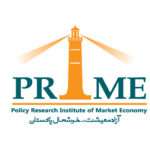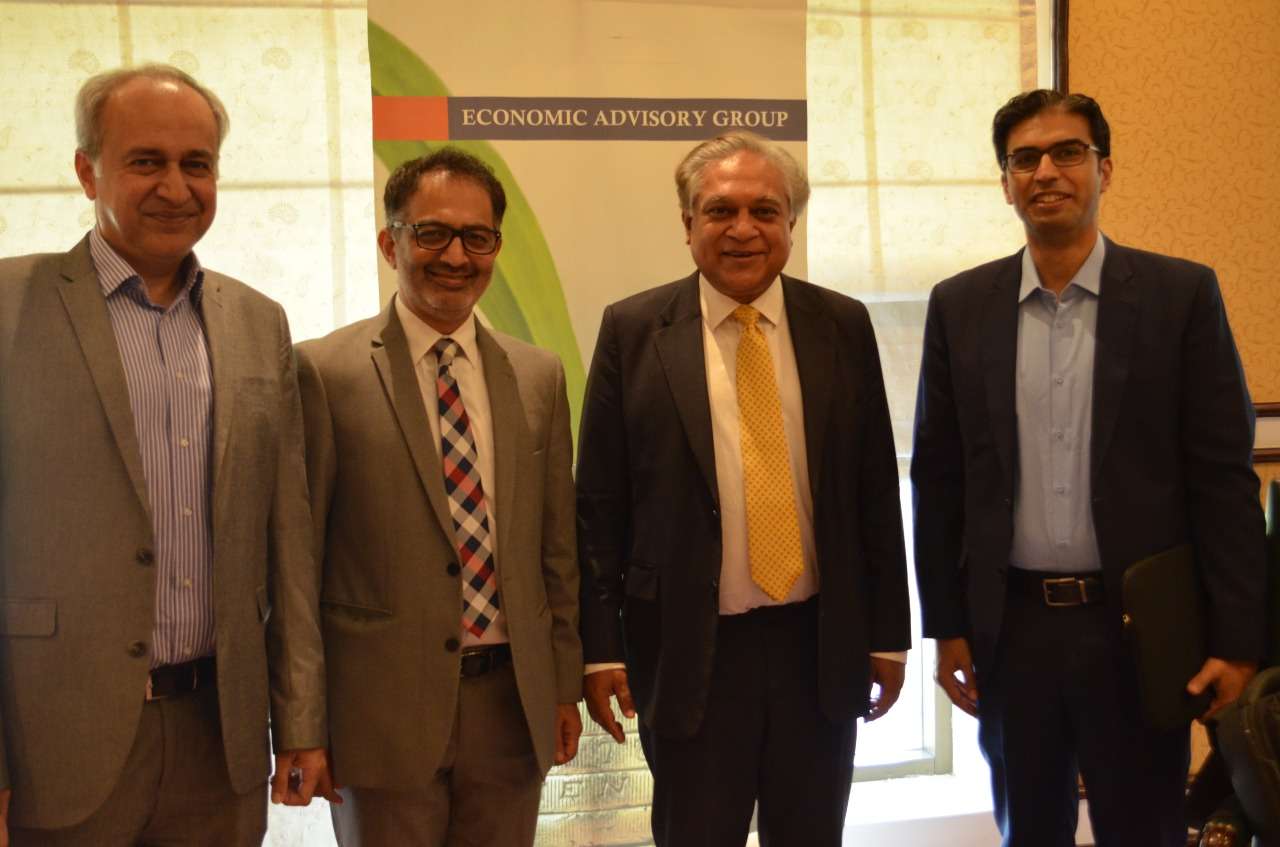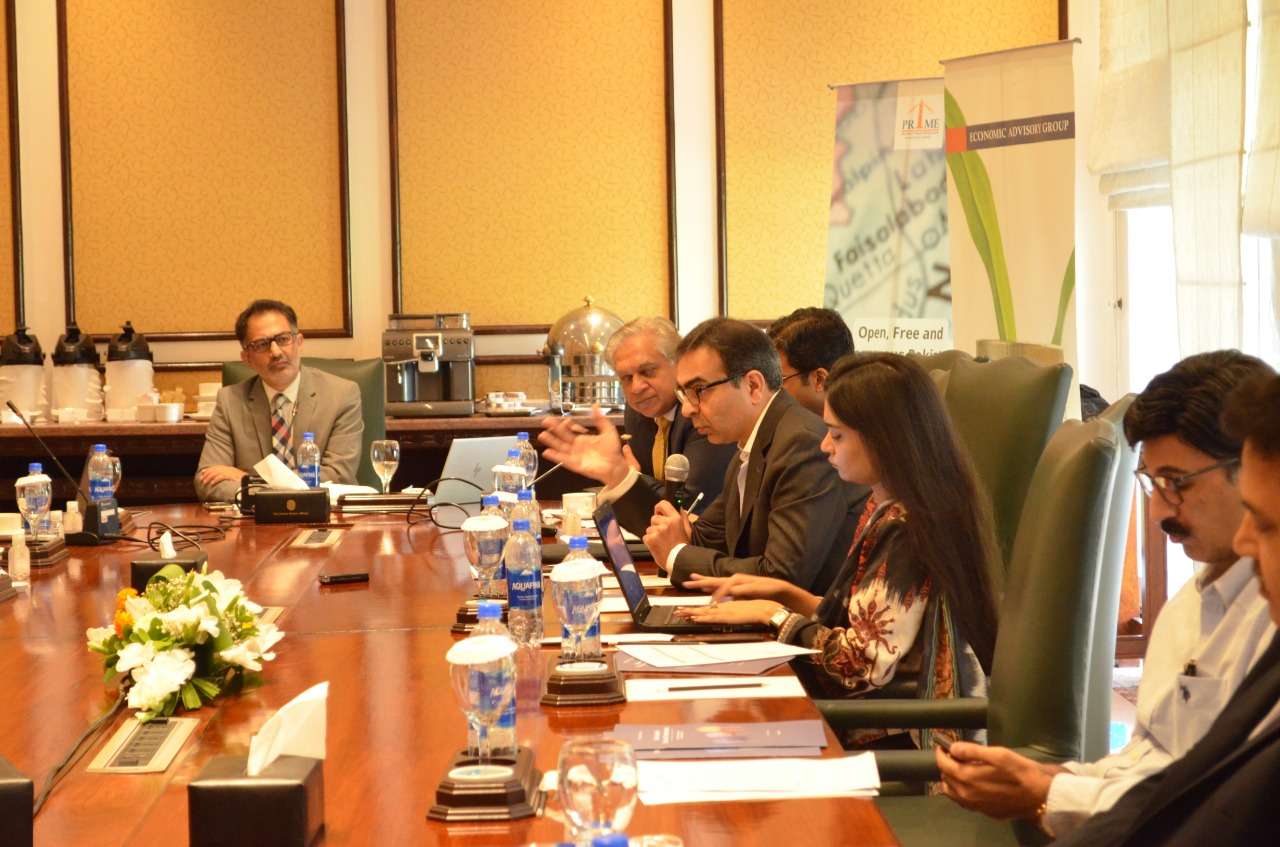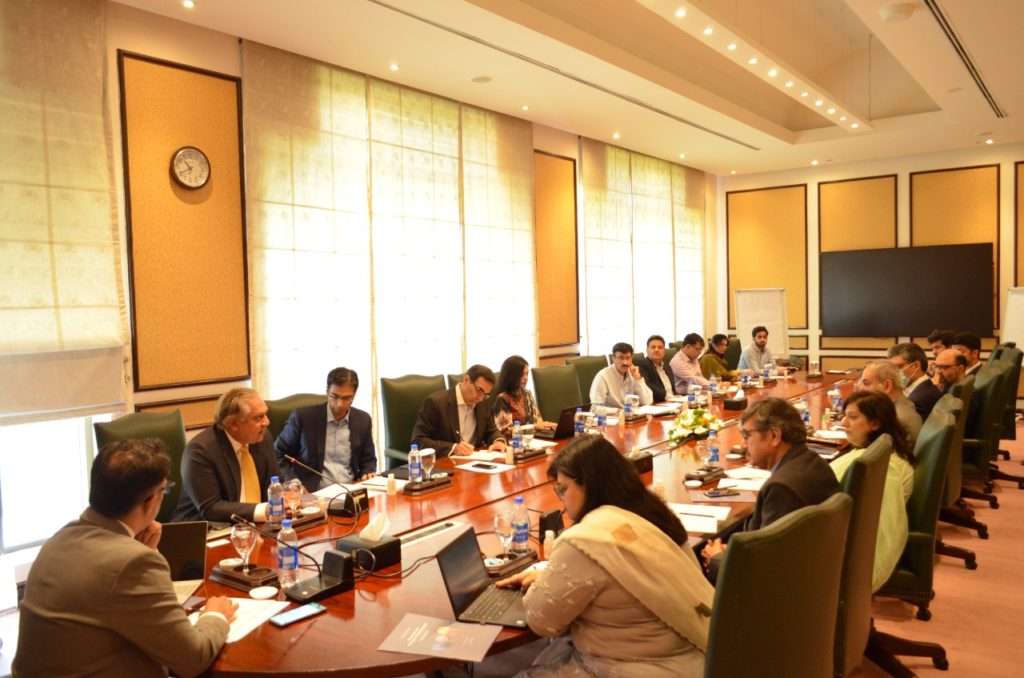 Post Budget Roundtable cautions on Budget credibility
Post Budget Roundtable cautions on Budget credibility
(Islamabad | 13th June 2022) – Budget 2022-23 has come under challenging circumstances when the country is facing both internal and external pressure in the form of fiscal, current account deficits, and rising international commodity prices. Policy Research Institute of Market Economy (PRIME) and Economic Advisory Group (EAG) have arranged an interactive Post Budget Roundtable where representatives from government, think tanks, academia, private sector, and media participated and contributed to the discussion on Budget 2022-23 which the government presented on the 10th of June 2022. The discussion started with Executive Director PRIME, Ali Salman’s initial views regarding the budget where he supported the government’s initiative on the reversal of tax and subsidy-related incentives to the construction and real estate sector. There has been a long discussion on unproductive investments in the real estate sector, taxing them can encourage entrepreneurship and investments. Referring to the tax regime proposed in the new budget, he added that the government has intentions of broadening the tax net but it needs to follow a different policy approach.
Discussion followed by remarks made by Chairman EAG, Javed Hassan who posed questions on the credibility of the new budget while acknowledging that the job of the Finance Minister in the formulation of the budget was most unenviable given the multiple challenges the country was facing. With reference to the new budget during the government’s ongoing negotiations with the IMF, he was of the view that Pakistan could face extremely onerous conditions where much of the growth is funded through external borrowing. Furthermore, the government must set priorities and allocate the budget efficiently, especially with respect to PSDP. He also sought clarity on how the budget targets of provincial surplus, petroleum levy and GIDC will be achieved. He felt in a democracy such as Pakistan, the public must be made aware of the reality of financial constraints and be prepared to sacrifice growth in the short term to ensure stability and structural reform. He emphasized that if Pakistan were to not revive the IMF program, the government could face greater public outrage than if it were to implement the budgetary measures necessary for reviving the program.
Dr. Vaqar Ahmed, Joint Executive Director at Sustainable Development Policy Institute (SDPI) added to the discussion that a budget under a coalition government is always a difficult task. However, the assumptions used during the budget preparation need some realism, and the indicators including projected growth and projected inflation required more work in order to avoid mini budgets in the coming months. The debt procurement strategy in the budget is unclear and there are limitations on how much the fiscal policy in the new budget can address the issues. Despite these ambiguities in the new budget, seven industries have managed to benefit including the pharmaceutical and chemicals.
Dr. Idrees Khawaja, Chief of Research, Pakistan Institute of Development Economics (PIDE) commented on the new budget while calling it a ‘price pass on to the consumer’ budget. There is a need for sensitivity analysis during preparation and before formulation of the budget. Drastic expenditure cuts could have been proposed by the government rather than passing burden to the consumer.
While talking about the sensitive macro-economic outlook of the country, Aniqa Arshad, Project Manager at the Friedrich Naumann Foundation (FNF) highlighted the significant increase in the government employees’ salaries on the cost of common people in the new budget. Like the previous budgets, the government has not come up with better solutions for the loss-making SOEs except for financing them. An increase in the Petroleum Levy has proven that the new budget is a pro-IMF budget and not in the interests of a common man.
Former Senator, Osman Saifullah agreed with the fact that none of the issues in this budget are new to us. Considering the current situation of the economy, to expect a government to come up with long term solutions in a budget is unrealistic. However, the budget should not be sector-specific rather the government should focus on benefiting the masses. He supported new tax measures to impose a tax on real estate income and super tax on banking companies.
Other participants expressed their fears that time was running out and if necessary corrective amendments were not made to the proposed budget, it might fail to win back credulity with the IMF and revive the Extended Fund Facility (EFF) program. Should that come to pass, Pakistan faces the prospect of default, which none of the stakeholders would want.

A few of the members of Economic Advisory Group – From left to right; Mueen Batlay, Ali Salman, Javed Hassan, Vaqar Ahmed
Post-Budget Roundtable was organized by PRIME in collaboration with FNF.
For inquiries, please contact saad@primeinstitute.org or call at 03345397644.


